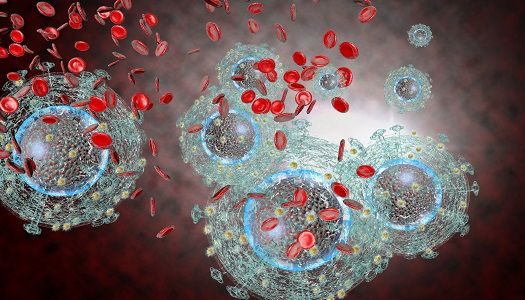Article
Fixed Combination Treatment for HIV Hits Phase 3 Trial Marks
Author(s):
The fixed-dose treatment from Gilead will be submitted for regulation.

A fixed-dose combination of drugs for the treatment of human immunodeficiency virus (HIV-1) infection have met phase 3 primary objectives of non-inferiority on 4 different trials.
The combination — 50 mg bictegravir (BIC), an investigational integrase strand transfer inhibitor (INSTI), and 200/25 mg emtricitabine/tenofovir alafenamide (FTC/TAF) — were investigated in efficacy and safety against other forms of HIV-1 treatment. BIC/FTC/TAF combinations were tested versus regimens containing 50 mg dolutegravir (DTF) among treatment-naiive patients, and virologically suppressed patients switching from an existing antiretroviral regimen, in 3 of the 4 studies.
A fourth ongoing study is focusing on virologically suppressed patients switching to BIC/FTC/TAF, versus remaining on a suppressive regimen of two nucleoside/nucleotide reverse transcriptase inhibitors and a boosted protease inhibitor.
In this single combination tablet treatment, biopharmaceutical company Gilead has found a HIV-1 regimen that brings together “the potency of an integrase inhibitor, bictegravir, with the demonstrated efficacy and safety profile of the FTC/TAF backbone,” Executive Vice President, Research and Development and Chief Scientific Office of Gilead Sciences, Norbert Bichofberger, PhD, said.
“Based on the results from these Phase 3 studies, the combination of bictegravir and FTC/TAF could represent an important advance in triple-therapy treatment for a broad range of HIV patients, and we look forward to submitting regulatory applications in the U.S. and EU this year,” Bichofberger said.
Two of the first 3 studies (Studies 1489 and 1490) were double-blind, in which treatment-naïve patients (n= 600 in each study) were randomized on an even ratio to receive BIC/FTC/TAF and abacavir/dolutegravir/lamivudine (600/50/300 mg) (ABC/DTG/3TC) in Study 1489, or DTF plus FTC/TAF in Study 1490. The primary endpoint of the blinded 144-week trial was proportion of patients with HIV-1 RNA levels less than 50 copies/mL at week 48, and the lower bound of the 95% CI for non-inferiority was 12%.
The third study (Study 1844), 520 patients who were virologically suppressed (HIV-1 RNA levels less than 50 copies/mL) on a regimen of ABC/DTG/3TC or DTG plus ABC/3TC were randomized on an even ratio to stay on their existing regimen or switch to BIC/FTC/TAF in a blinded manner.
The fourth study (Study 1878) was an open-label study in which 520 patients who were virologically suppressed on a boosted protease inhibitor of 800 mg darunnavir or 300 mg atazanavir, plus a nucleoside/nucleotide backbone of ABC/3TC or emtricitabine/tenofovir disoproxil fumarate (200/300 mg) were randomized on an equal ratio to either maintain their current regimen or switch to BIC/FTC/TAF.
The primary endpoint in these 2 studies was the proportion of patients with HIV RNA less than or equal to 50 copies/mL at Week 48, and the lower bound of the 95% CI for non-inferiority was 4%. Both studies were randomized through 48 weeks, and patients continuing in the study afterwards enter an open-label extension receiving BIC/FTC/TAF.
BIC/FTC/TAF met the definition of non-inferiority in all 4 studies. The combination treatment was also well-tolerated in all 4 studies, with no patients discontinuing study medication due to renal events.
Though no ruling on the safety or efficacy of the investigational treatment has yet been made, Gilead intends to share data from BIC/FTC/TAF’s phase 3 trial results at upcoming scientific conferences.
A press release regarding the study results was made available.
Related Coverage:
FDA Approves New Once-Daily HIV Treatment
Drug Crime Makes It Harder to Combat HIV
Survival Rates of HIV Positive Patients on ART Continue to Improve





